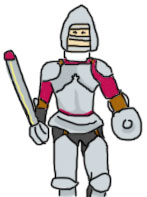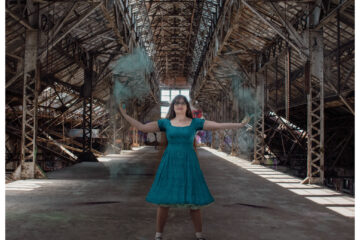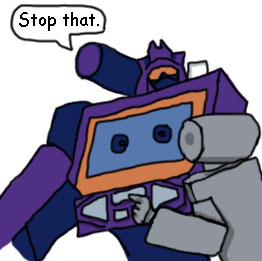This is a memoir piece I wrote for Argot Magazine, which has since been taken down.

I’m a nerdy freshman at Case Western Reserve University, hoping to major in Science Fiction and Some Type of Science (I hadn’t picked one yet) when I’m walking back from class. I see a group of guys wearing tin cans on their heads and swatches of carpet on their shoulders hitting each other with sticks. They look slightly ridiculous, but it’s weird, so I stop to watch.
A woman in a blue cotton version of an Italian Renaissance dress approaches me. “What do you think of our fighters?” she asks.
I don’t want to be rude, so I take another look at the group, trying to find something to compliment. I notice a pair near the back. Their armor is metal and looks right. They are moving more frenetically than the others, and the sounds their sticks make are louder – painful cracks. “Those two look good,” I say, pointing.
She nods knowingly. “Of course – that’s Duke Laurelen and Sir Theoderic.”
I am unimpressed with made-up names and titles. “Why do they get to call themselves that? Can anyone just decide they are a duke?”
She looks stunned. “Absolutely not – they have to earn it.”
As soon as she says “earn it,” I see the struggling men in a more noble light. They aren’t just playing pretend – there are real stakes, real consequences to winning. Like earning a belt in Karate but this fighting was not something they would do in strip malls. This was fantasy. “Can girls play?” I ask.
“This is the only full-contact sport where women and men compete equally!” she says, gushing. “Women can become knights or even win the crown of the kingdom! There are no gender or weight classes. Everyone is equal.”
This, more than anything I had ever heard about chivalry or courtly romance, sounds like a dream made real. Yet five years later, after the fifth man says, “I can’t help you get started because you’re a woman and your body is just completely different,” I end up in a basement with a woman who has been fighting for years. She helps me make a belt to hold a leg harness out of scrap leather.
“Of course, you have bigger hips and breasts,” she says. “I know nothing about arming your body. I use men’s patterns.”
We see the irony but don’t blame the men. We’ve been raised to see the men’s point of view more readily than ours.
Years later, more comfortable, I ask one of the trainers why he never trained me or helped me get armor together. He answered, “Girls rarely stick with it. You want to give your time to someone who will stay.”
It’s winter in Euclid, Ohio. My brother-in-law, John, and I are pulling armor out of the trunk of my car and putting the painfully cold pieces on in the parking lot next to the Shore Civic center, I’ve become quite the proselytizer. A week after dragging my brother-in-law to meetings, he has received a second-hand full suit of armor. He fights for a year or two. I don’t even notice the difference in our struggles until now.
I roll my leg harness over so it fits against me properly and kneel down – one knee loose inside its harness, the other bent up in front of me as I fasten the buckles holding the harness on. There are three – one at the bottom, one behind the knee, and one halfway up the thigh. My thigh buckles have always been very loose. I should tighten them but I’m afraid of cutting into my big thighs.
I’m sitting right in the doorway and a woman in gym clothes tries to open the door, bumping into me. “Sorry,” I say, “We didn’t want to lug this stuff up the stairs.”
She nervous-laughs and sidesteps our gear to go down the stairs to the lower level of the parking lot. There’s an aerobics class that meets at the center the same night we do. She’s probably in it.
I finish fastening my leg harness and pick up the gambeson, the padded coat I wear to protect me from the armor. I made it myself, inexpertly. It smells of old sweat, motor oil, dust and duct tape. I grimace and slide my arms in. It ties in front – there used to be two ties, but one broke soon after I made the gambeson. I fasten the neck with duct tape. The weight of the arm harness pulls the neck off my shoulder on the right. Just one of many things that should be fixed, but I never get around to it.
I pick up the cuirass, its plates of mild, fluted steel modeled after a piece in the Cleveland Museum of Art armor court. It also weighs thirty pounds. The front and back are attached with two shoulder straps. I flip it like a sandwich board over my head. I could literally hurt myself putting this thing on. The weight settles comfortably over my gambeson.
“Wow it feels good to wear armor,” I say.
“Oh yeah,” John says. “There’s something about just putting on my helmet that makes me feel invulnerable – like I could be shot by a gun and not get hurt.”
I don’t feel like that. I feel… completed. In my armor I’m not an awkward collection of ugly parts, unable to fit in anywhere. I am an armored combatant. Instantly recognizable as having a place and function in the Society for Creative Anachronism.
I sling my helmet bag on my shoulder and stick my sword through the handles on my shield so I can carry them together. “I’m dressed enough for now,” I tell John. “See you upstairs.”
The SCA meets on the second floor of the civic center. My thighs burn with the effort of climbing the stairs, but the armor is easier to carry distributed on my body.
At the top of the stairs my friend Steve is suiting up. He’s adjusting his gorget around his neck.
“All right!” I set my bag down next to his. “I was hoping for an easy kill tonight!”
He blinks in mock surprise. “You fight?”
Steve is my smack-talk tutor. “So I got your Christmas present. I hope you don’t mind it’s late.” I pause to make sure he’s paying attention. “I got you an ass-whoopin’.”
He laughs. “Great! I can’t wait to see how you wrap it!”
My gorget – my neck protector – won’t snap. While I’m fumbling with it, a brown and yellow gambeson appears behind Steve. It’s Lothar. I jump up. Our breastplates clunk together as we hug.
“Hey little sis,” he says. “We’re going to work on something with you today.”
He turns and says hello to Steve, and I try to work in my ass-whuppin’ line again. Lothar is squired to the knight I am man-at-arms to, so I call him Big Brother and he calls me Little Sister.
Lothar lends me his sword. It’s a shaved-down rattan staff, already showing wear, with a soft leather pistol trigger inside the basket hilt. He wants me to see if I like the feel. His sword is lighter than mine, and a good seven inches longer. I like it immediately.
I’ll never use one like it. The guys on the Armor Archive online say pistol-triggers are an ahistorical abomination and I’ve decided I’m in the authenticity camp.
The sword I made for myself is too heavy and I know it. It has a cross-hilt intended for a bastard sword but I wanted a cross-hilt to be more authentic. It is fat because I grew up poor and I hate the idea of buying a second stick of rattan if not shaving this one down will make it last longer.
I face an athletic man in his twenties. My sword moves sluggishly as he dances in light plastic armor. A seasoned Duke, one of the most respected fighters, watches on the sideline, a hand to his chin. “Hold!” he shouts. We stop and step apart.
He turns his back to me and addresses the young man. “You’re using all arm. You have to swing from the hip. Here, let me show you.”
I don’t mind being ignored. I’m used to learning second-hand.
I finally make it into my first tournament, and there is a huge crowd. The ladies from the dancing guild, the scribes, and the people I help in the kitchen are there. I’m shocked and worried at the turnout.
“Why are you all here?” I ask.
A cook, her head wrapped in a veil, says it like it’s obvious.“To see you kick ass!”
A skinny young man dressed as a samurai tells me, “When I become an authorized fighter, I want to fight you. Women are faster than men and I plan to be fast.”
I want the ground to swallow me. I am not Eowyn. I am not Wonder Woman. Twenty smiling faces lay the burden of representation on my steel-weighted shoulders. I stumble into losing two fights and being eliminated from the double-elimination tournament.
It’s August, in rural Pennsylvania. I’ve traveled to a huge two-week camp-out “war.” I’ve gotten up every morning at the crack of dawn, put on my armor, and hung anxiously around the fighting field, waiting for someone to train me.
In the evening, I join the fighters from the barony wherever I find them in their household camps. Steve and his knight, Alaric, are talking about training together tomorrow. Another opportunity so easily dispensed to others. Is it the thousandth? I can’t stand watching it slide by. Hot and helpless, I resolve to speak. “Do you mind…” I stammer. “I mean, if it’s not too much trouble, could I maybe join you?”
“Lyonnete!” Sir Alaric slaps his thigh. “You should feel obligated to join us!”
Something swells and relaxes in me. I can go if it’s an obligation.
Later on the field, fighting pick-ups against strangers, I face a man a head taller than me. No matter how many times I hit him, he grunts that the blows are too light to accept. We circle. I deflect. He strikes me. I am dead again.
“No offense,” the man says. “But you are incapable of hitting me hard enough. There’s no point in our fighting.”
I swallow my tears, thank him for his time, and wait for another opponent.
Incapable and worthless and alone, I walk back to my tent, curl up under my shield, and cry.
Around the campfire that night, all the men boast of dukes slain and armies vanquished. I wonder why I can’t beat myself into competence.
In the SCA, it is on the honor of the person being struck to declare it is a good blow. A good blow is one that would cut through a light chain haulberk or open-face iron helmet, regardless of what real armor the fighter wears. These are the standards in the Xeroxed packet. Like all SCA fighters, I secretly feel that I take lighter blows than everyone around me. Unlike the men, I wonder if it’s because I’m female, because of unconscious or conscious bias.
I do a lot of upper-body strength training. It doesn’t help.
One day Steve lines up pop cans in his garage for me to hit with my sword. We find I flinch before impact. It hurts, my muscles constricting hard to pull back at the last second all the momentum of my hip-powered swing.
This is a horrible truth to learn about myself, that I’m letting them win, that I am afraid to hit. I cry.
I crush all the cans by the end of the day.
We’re doing a fighting demonstration for a group of girl scouts. It’s two of the best fighters in the barony and me. I think it’ll be okay because it’s just a demo, and guys take my blows more readily when there isn’t a tournament prize.
At the start of the demo, the four rows of little girls cheer ecstatically for Lady Lyonnete. I see visions of twenty new recruits, a new generation of lady fighters. I lose my first fight, but their cheers are just more passionate. “Go get him, Lyonnete!” I lose my second fight.
Their cheers get quieter, but some girls are still interested. They ask me questions, asking to hold my sword, asking how come I had to fight that big man on my knees. The knight I’m dueling and his squire are laughing, giving each other pointers. They are treating this just like a practice. I lose eight fights in a row. Each loss makes more girls turn away. There are no cheers anymore. I want to scream because the two men I’m fighting don’t see the girls grow from interested in our sport to depressed, seeing once again something they can never be good at.
I am an authorized combatant for ten years. I gain a metal buckler. A better leg harness. A red belt and spurs marking me as a squire. A smattering of tournament prizes: a candle holder, a gorget, nine raw emeralds set in a silver broach. New fighters start to approach me for guidance.
I learn what it feels like to impose my will on a man with strength and skill.
I learn what it feels like when another mans’ will refuses to let him accept my strength and skill.
I start playing football because of my experience as a fighter. It gives me confidence in my strength, in my body.
I learn what it is like not to carry the unspoken burden of representing your gender while competing at a sport. In the SCA, often I was one of two women in a tournament with fifty men. Sometimes the only one among a hundred. In the WFA, we are all women and therefore we are all just football players.
When I come back to the SCA list field, when I see a knight dismiss me as irrelevant, I feel that weight return. I see how our equal sport isn’t equal. It strives to be, but there are all these moments of silence, of friction, of extra steps to reassure the boys that they set the rules and the norms.
No one asks new male fighters if they are just there to look pretty in armor.
No one tells them they have to figure out armor all on their own because breasts are impossible to learn how to fit around.
No man worries about being excluded from friendship with the fighter wives on the sidelines, or that he won’t be welcome with the fighters when they have a “guys night.”
And when some hotshot who thinks his skin is tougher than a rhino’s hide refuses to acknowledge their blows, they will never wonder if it’s just because they are a man.
So I leave. But I leave a part of me behind. I leave behind a beautiful dream of egalitarian chivalry, of men and women being knightly to each other. Every woman who picks up a sword eats away at those barriers a little bit. And if we keep picking those swords up, keep taking the places left by our sisters who were worn down by fighting two battles in every fight, eventually, I believe we will win.


